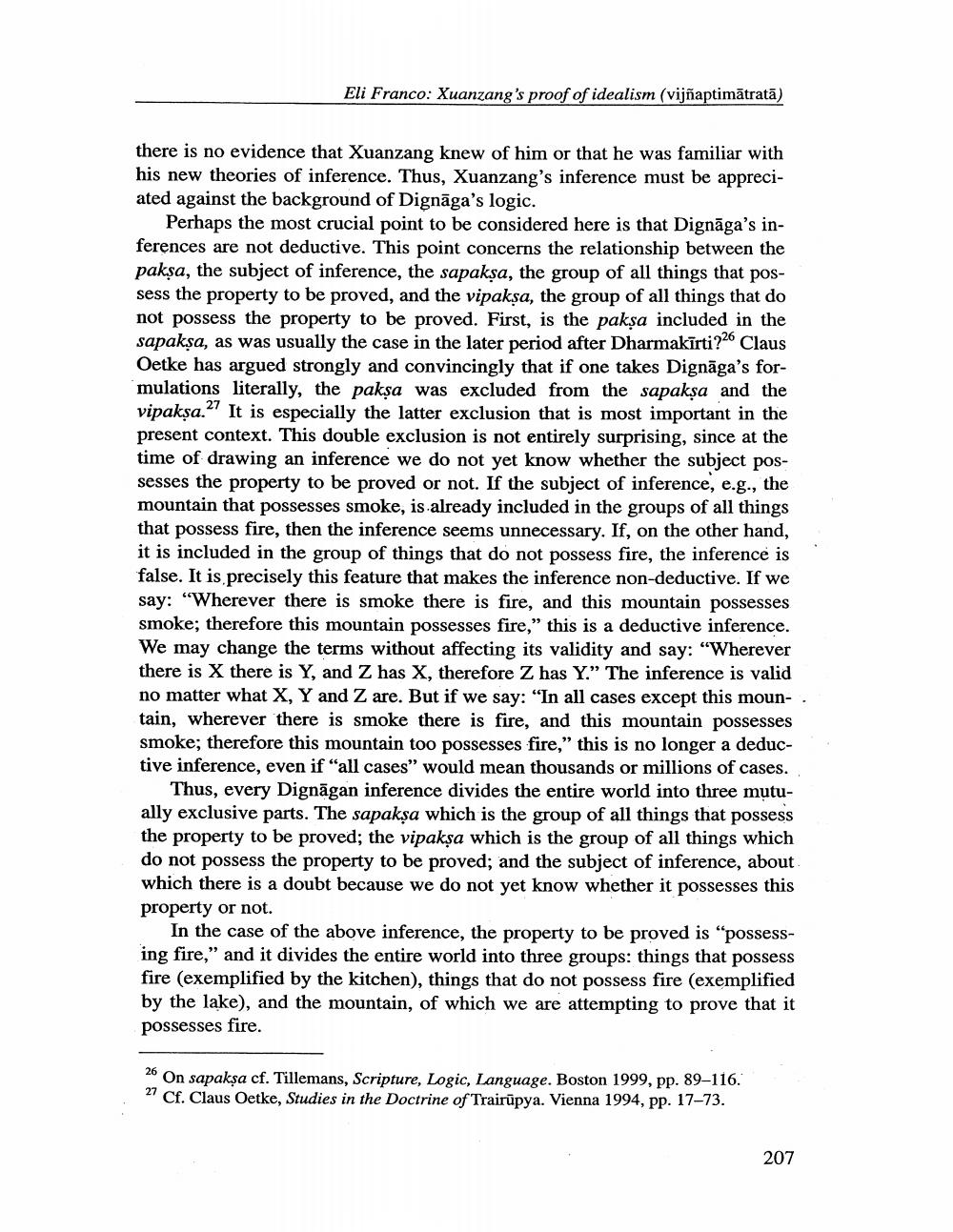________________
Eli Franco: Xuanzang's proof of idealism (vijñaptimātratā)
there is no evidence that Xuanzang knew of him or that he was familiar with his new theories of inference. Thus, Xuanzang's inference must be appreciated against the background of Dignāga's logic.
Perhaps the most crucial point to be considered here is that Dignāga's inferences are not deductive. This point concerns the relationship between the paksa, the subject of inference, the sapaksa, the group of all things that possess the property to be proved, and the vipaksa, the group of all things that do not possess the property to be proved. First, is the pakṣa included in the sapaksa, as was usually the case in the later period after Dharmakīrti?26 Claus Oetke has argued strongly and convincingly that if one takes Dignāga's formulations literally, the paksa was excluded from the sapakșa and the vipaksa.27 It is especially the latter exclusion that is most important in the present context. This double exclusion is not entirely surprising, since at the time of drawing an inference we do not yet know whether the subject possesses the property to be proved or not. If the subject of inference, e.g., the mountain that possesses smoke, is already included in the groups of all things that possess fire, then the inference seems unnecessary. If, on the other hand, it is included in the group of things that do not possess fire, the inference is false. It is precisely this feature that makes the inference non-deductive. If we say: "Wherever there is smoke there is fire, and this mountain possesses smoke; therefore this mountain possesses fire," this is a deductive inference. We may change the terms without affecting its validity and say: "Wherever there is X there is Y, and Z has X, therefore Z has Y.” The inference is valid no matter what X, Y and Z are. But if we say: "In all cases except this moun- . tain, wherever there is smoke there is fire, and this mountain possesses smoke; therefore this mountain too possesses fire,” this is no longer a deductive inference, even if "all cases" would mean thousands or millions of cases.
Thus, every Dignāgan inference divides the entire world into three mutually exclusive parts. The sapakṣa which is the group of all things that possess the property to be proved; the vipaksa which is the group of all things which do not possess the property to be proved; and the subject of inference, about which there is a doubt because we do not yet know whether it possesses this property or not.
In the case of the above inference, the property to be proved is "possessing fire," and it divides the entire world into three groups: things that possess fire (exemplified by the kitchen), things that do not possess fire (exemplified by the lake), and the mountain, of which we are attempting to prove that it possesses fire.
26 On sapakşa cf. Tillemans, Scripture, Logic, Language. Boston 1999, pp. 89-116. 21 Cf. Claus Oetke, Studies in the Doctrine of Trairūpya. Vienna 1994, pp. 17-73.
207




